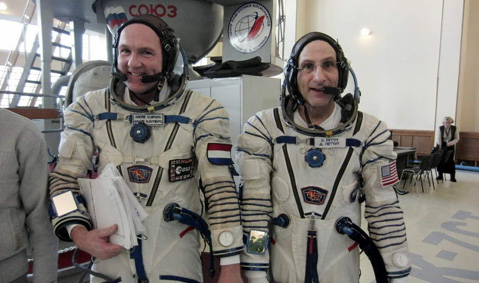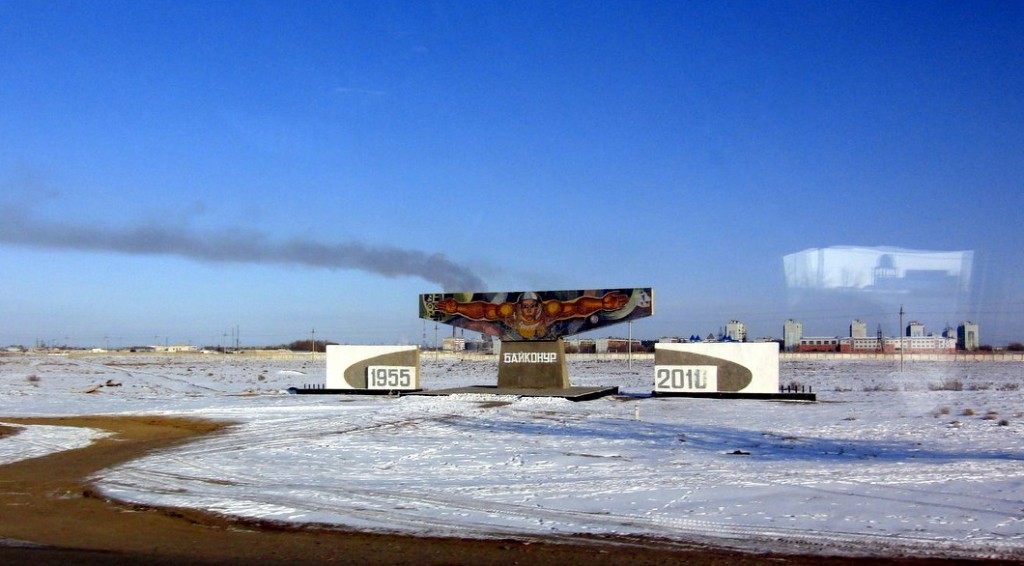The Road to Space
Spaceflight training is in many ways more demanding than the Space Station mission itself. But it’s the next best thing to actually flying
The road to space is a long and arduous path, a meandering trip that in many ways is more demanding than the Space Station mission itself. Training to fly into space is also the next best thing to actually flying into space. And flying into space is what my job is all about.
When I tell folks that I have been training for this Expedition 30/31 mission for two years, they often remark about the hardship, particularly the degree of international travel, which always equates to time away from your family.
The International Space Station, which I like to simply call space station, was built by over a dozen different countries. Astronauts in training are the tip of the iceberg in the spaceflight business, and thus are in high demand to be seen in the international partner countries. So during this two-year (or sometimes two-and-a-half-year) period, crews in training accumulate a lot of frequent flyer miles as they travel around the world to these various training camps for astronauts.
In this training period, you effectively put out an effort equivalent to achieving a graduate degree in engineering. Except in this case, your dissertation defense is conducted in space. And a mistake costs you more than minus ten points.
I have had the good fortune to travel to Montreal, Canada (often in bitter-cold wintertime), Tsukuba, Japan (usually in muggy-hot summertime), Cologne, Germany (I missed Oktoberfest by one rainy week), Star City, Russia (all the seasons, from smoky-hot to biting-cold), and Baikonur, Kazakhstan (either hotter than Star City or colder than Star City, with little in between). These are places that are steeped in proud, rich culture, with long histories that make anything back home seem young in comparison. For a simple country boy from a small logging-farming town in Oregon, the opportunity to live in these places for an accumulated time of weeks and months over a period of two years is an education in itself.
And of course there is Houston, Texas, my home with my family, in fully urbanized civilization. Houston is the center from which my strength flows.
At these training camps, we work hard. I typically start at 7:00 am (9:00 am when in Europe) and go until 6:00 to 8:00 pm. After every two-hour block of time, the subject abruptly switches. One block may be about the reaction control thrusters that control spacecraft attitude, which involve these delightful mathematical constructs called quaternions, while the next might be about installing a skullcap on your crewmate for recording an electroencephalogram. Then we might learn how to use a surgical staple gun to repair a gaping scalp wound, followed by shoving a urinary catheter up the orifice of a rubber model (for some reason we do not practice this on our crewmates). Then we get a break for lunch and continue until evening.
International travel gives us no relief from the demands of our physical trainers. Experts in exercise physiology are assigned to follow a crew and hound us into a degree of athletic conditioning just shy of that for an Olympian. The purpose for this is more than just dangling a ribbon-clad piece of metal around your neck. We train to the bone literally to save our bones; we want to return from our mission and continue to live a normal life on this planet. I cannot think of a better motivation. There are a number of well known maladies that inflict havoc on human physiology when one ventures off into space for long periods of time. This is our modern equivalent to 18th-century seamen contracting scurvy on long ocean voyages. What was all a big mystery then is now 4th-grade level knowledge. Our current suite of space-born maladies are just as baffling to us now as scurvy was back then, and I venture to guess that in 200 years, a 4th grader will be able to tell you the reason why. For now, our most informed haven’t a clue. Such advances in human physiology are pried from the bodies and souls of those who explore.
Our current thoughts for maintaining health center around a blend of strenuous cardiovascular and weight lifting exercises (we call it resistance exercise since “weightlifting” in a weightless environment just does not compute). Again, in 200 years, this will probably be viewed with the same disdain that we currently hold for the practice of bloodletting in past centuries. So I sweat and grunt in the gym wherever I happen to be in training, under the virtual eye of my trainer, who constantly nags me to put another plate on the bar, and not one of those wimpy 10-pounders. He will be on my direct on-orbit e-mail list, so there is no relief on or off this planet.
My calling in this life is to be on the frontier. The effort required to get there — the studies, the mental work, the physical work — are not the difficult parts. I thrive on such activity, and it only makes me stronger. Whenever I leave the confines of civilization, a small but ever present spark in my heart grows into a flame, becoming a beacon that fills my soul with warmth. My spirit is freed by the very nakedness of the universe. But then another spark, always present but often ignored, pulls at the fabric of my being, reminding me of civilized life, at home with my family. Such is the Explorer’s Dilemma. Being thus plagued, my spirit is never at peace with where I am. This energy, if properly channeled, can be the source of great strength.
The venues of exploration come and go with time, but the human story remains the same.
If I were not assigned to this mission, I would be back in Houston, tasked as an astronaut to a technical engineering project supporting some aspect of space flight. Exciting of course; working on the human exploration of space is where I want to spend my life’s energy. However, in blunt astronaut vernacular, this work is called “flying a desk.” So when asked if I mind the long road to space, I think to myself, “During the past two years I could have been flying a desk or training to fly into space. Which would I prefer?” Then, after a small pause, I reply, “It’s a long road, but at the end I get to fly into space.”

